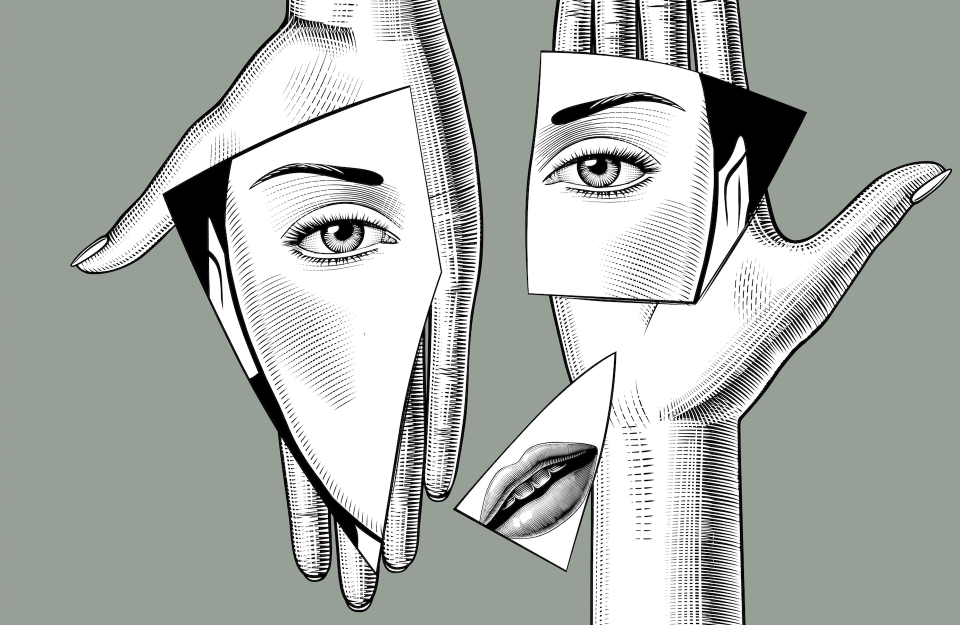Why is Hollywood So Obsessed with Con Women?
Sarah Banet-Weiser and Kathryn Claire Higgins examine how the shows “Inventing Anna” and “The Dropout” reflect a post #MeToo society.

In the last few years, television shows about con women have been popping up on streaming services. From Apple TV’s “Hollywood Con Queen” to Hulu’s “The Dropout,” audiences clearly have a thirst for stories about female scammers.
But why is the “confidence woman” such a hot topic right now? Feminist scholars Sarah Banet-Weiser, Dean of the Annenberg School for Communication at the University of Pennsylvania, and Kathryn Claire Higgins, lecturer in Global Digital Politics at Goldsmiths, University of London, examine this in their new paper, "Liars, Scammers, and Cheats: Con(fident) Women and Post-Authentic Femininities on Television," recently published in the Journal of Gender Studies.
According to the researchers, these series reflect broader societal anxieties about gender, race, and capitalism at a time when women’s believability is under intense scrutiny in the wake of movements like #MeToo and #TimesUp. "Television is not just reflective of gender and culture, but it is also crucial in creating cultural norms of gender,” says Banet-Weiser, Lauren Berlant Professor of Communication.
The paper highlights two recent and widely discussed fictionalized portrayals of female con artists: Anna Delvey (“Inventing Anna”), who posed as a wealthy heiress to con New York’s elite, leveraging confidence and artifice to gain access to high society, and Elizabeth Holmes (“The Dropout”), the disgraced founder of Theranos, whose charisma and ambition were used to manipulate investors, echoing the aspirational, yet hollow narratives of the “girlboss” archetype.
Backlash Against #GirlBoss Feminism
Banet-Weiser and Higgins argue that the stories of Delvey and Holmes serve as backlash against the popular #girlboss feminism that dominated the 2000s, encouraging women to equate financial success with female empowerment and to be confident at all costs.
While conmen are typically represented as “lone wolves, monsters, or wayward geniuses” in TV and movies, Delvey and Holmes are cautionary tales about what happens when women’s demands for investment, both financial and emotional, are granted too freely, Banet-Weiser and Higgins point out.

They argue that “Inventing Anna” and "The Dropout” serve as moral tales that warn of the dangers of investing trust in the "con(fident) woman." The shows are, in this way, a kind of backlash – not against second-wave feminism, but rather, against popular feminism and its entanglement with both whiteness and capitalism.
Banet-Weiser sees this kind of backlash in a very different media form: the online visibility of “tradwives.”
“The online performances of tradwives of a nostalgic, highly stylized femininity are framed as a romanticized mode of retreat from a broken system—the same system that nourishes con women," she says. "Unlike con women, tradwives surrender to dominant norms of gender; they explicitly do not resist them. Their portrayals of earnest, domestic femininity can be positioned as a foil against the con woman, who wants what men seem to be granted—fame, fortune, independence."
The Gender and Racial Politics of Believability
It’s noteworthy that these stories are gaining popularity when women’s believability is being questioned en masse after the #MeToo movement, which emboldened them to come forward with accusations of sexual violence, Banet-Weiser and Higgins point out.
What’s more, both Delvey and Holmes are white, and their perceived “believability” is deeply tied to the privileges of whiteness.
“The con woman trope sits in lineage with both a long history of white people receiving more lenient sentences (if even being charged) in a context of mass incarceration of Black Americans,” Banet-Weiser and Higgins write. “For [people of color], criminality is a burden of stereotype, while for [white women], it is a forgivable twist and even marketable source of brand value.”
Because of this conditional believability granted to white women, Delvey, for example, can get away with not only pretending to be a heiress, but also avoiding looking like what she actually is — a criminal.
Confident Woman to Con Woman
The trope of the con woman is a powerful, if ambivalent, allegory for the broader cultural anxieties of the 2020s, Banet-Weiser and Higgins argue. “Inventing Anna” and “The Dropout” are more than just critiques of Delvey’s or Holmes’s actions. They are parables dedicated to showing what happens when white women like Holmes and Delvey are believed too quickly and too lightly in our culture.
“These stories are more than entertainment,” Banet-Weiser says. “They demonstrate how society grapples with trust, power, and the limits of feminist progress in a capitalist world. With both the con woman and the tradwife achieving heightened media visibility in the past few years, it seems clear that independent women, feminism, and any kind of righteous anger at gender and racial inequalities are a liability rather than a promise of a better future."



